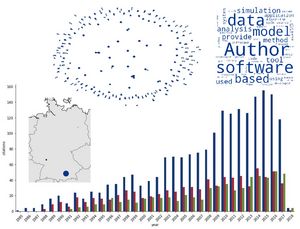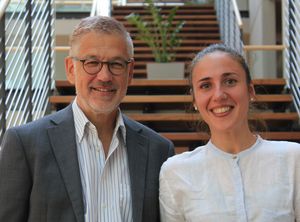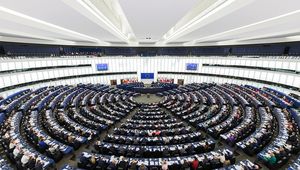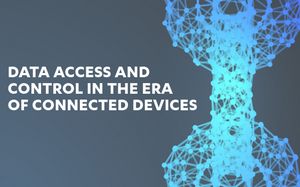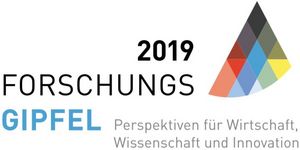If you order Parmesan with your pasta in Buenos Aires, the waiter will most likely give you a friendly nod, but what he brings to your table is not likely to be recognized by lovers of Italian cuisine as “Parmigiano Reggiano”.
This will change with the new free-trade agreement between the European Union and the states of the Southern Common Market Mercosur, on which both sides reached an agreement in principle in late June.
The Mercado Común del Sur (Mercosur) constitutes South America's largest internal market. If ratified by the EU Member States and by Argentina, Brazil, Paraguay and Uruguay, the trade agreement would create a free-trade zone for approximately 770 million people. The goal of the deal is to open up the European Single Market for products from the Mercosur states, in return for abolishing customs and trade barriers for industrial goods from the EU. In addition, the EU has negotiated protection for 357 food and agricultural products like cheese, ham or wine that are protected by “geographical indications of origin” from copying or misuse in the EU and, soon, in Mercosur territory. So next time you order Parmesan in Argentina, you will have a better chance of actually getting a typical Parmiggiano.
The details of the agreement are not yet finalized. The protection of other kinds of intellectual property, for example, such as technological inventions, literary and musical works, or plant varieties, is also to be included the trade deal. It remains to be seen what the specific design will be. It is already clear, however, that Latin America has very diverse rules and standards of protection that apply to these intangible goods.
“The provisions in the patent, copyright, plant variety protection, or trademark laws vary in Latin America from country to country, regardless of which trade association they belong to”, explains Reto M. Hilty, Managing Director of the Munich Max Planck Institute for Innovation and Competition. “During the course of the 20th century the overwhelming majority of Latin American states did commit to the high standard of protection of the industrial nations by way of international, regional and bilateral agreements, so that they could in turn take part in world trade. This despite the fact that strong protection is not necessarily in their own interest, considering the current development stage of the Latin American economies”, observes the intellectual property law expert. Analyzing these protection mechanisms and studying their effects on the economic development of the region is the goal of the research initiative “Smart IP for Latin America”.
An eight-member team is set to research the significance and functioning of different standards of protection and the effect of regulations on the dynamics of competition.
The results of this research are relevant not only for the policy-making processes of the local legislative powers, but also for companies that are interested in investing in or expanding to this region. “In Brazil, for example, methods for manufacturing transgenic plants are patentable, but not in Argentina”, points out Juan Ignacio Correa, a legal scholar and native of Argentina. And yet the question of whether and how to protect innovations in the countries themselves is essential for a forward-looking agricultural and industrial policy.” Correa will head up the new “IP Observatory” at the Universidad de Buenos Aires. Scheduled for launch in October of 2019, the observatory will coordinate Institute projects in the region.
In the four projects currently ongoing, legal scholars are studying the current status of IP protection in different Latin American countries. They have to consider historical, cultural, social, economic and political particularities in order to understand the effects of the applicable laws and identify misguided or lacking regulations.
In the area of patent law the researchers are putting together country reports detailing what can be protected under the national patent systems, what types of use are exempted from patent protection and what limitations to patent protection exist, which is significant particularly in the areas of pharmaceutics or plant protection, but also in other industries. “We collect this data from different sources: the local experts' answers to a detailed questionnaire, the sources of law and case-law, and our exchange with public agencies and interest groups in the respective country”, explains Matthias Lamping, Senior Research Fellow at the Max Planck Institute in Munich and an expert on Latin America.
“Experience shows that strong patent protection will hardly benefit a country that generates little innovation itself but primarily relies on importing products or technologies to meet its own population's demand, for example in medicines”, reports Reto M. Hilty. Furthermore, the revenues from such innovations as a rule fail to benefit the national economy, because the great majority of owners of national patents are located outside the country. While the scope for limiting national patent protection under international law is often taken advantage of, a positive effect may still not be felt due to other factors such as a lack of competition among generic drug manufacturers.
A further field of research treats copyright protection in this region that is rich in art and music. “Films and music from the region are currently popular as far away as Asia and enjoy wide dissemination. It is doubtful, however, that the protection of authors and the system of collective rights management through CMOs, in their current form and method of operation, will really lead to Latin American artists being able to draw income from them”, asserts Hilty. The focus in this research is on examining the functionality of the rights management system and developing recommendations for lawmakers.
In the area of technology transfer the research teams are studying the functioning and effectiveness of the existing legal framework in individual countries and analyzing ways in which the innovation potential in Latin America can be optimally realized. One important aspect of this project is international technology transfer, both between highly industrialized states and the countries of Latin America and between the latter countries themselves.
In the area of protection of geographical indications of origin it has become clear that the marketing potential of regional products is nowhere near being fully realized. While a few protection labels have been created for products like coffee providing legal protection for their indication of origin, this is not yet the case for a great number of foodstuffs. “For one thing, there is a lack of coherent marketing concepts to publicize the excellent quality of some of these products, whether they rely on geographical indications of origin or collective marks; in addition, there is not enough technological innovation in the agriculture sector that could be protected by patents or plant variety rights”, explains Juan Correa. In this project as well the legal researchers employ country-specific questionnaires to determine which legal frameworks are in place and how practitioners deal with them.
One thing the research projects all have in common is their comparative approach in empirically studying regulatory and factual conditions. In the view of the research team, the only way to draw up guidelines for future legal developments is by analyzing the current situation in all its political, social and economic facets and contexts. Among the important questions: How do incentives arise for market players? Are there specific regulatory approaches that can better realize the economic and cultural potential of the Latin American region?
In the initiative “Smart IP for Latin America”, therefore, it is important to engage in a dialogue with other disciplines such as economics, sociology or political science. “Only evidence-based research allows us to make sound recommendations for action that ultimately can be addressed to political decision-makers in Latin America”, explains Prof. Hilty. He clarifies that the point is precisely not to achieve and enforce the strongest possible protection of intellectual property - at least, not in countries where the business sector currently has no competitive advantages internationally and no relevant potential for creating them. Instead, the goal of this long-term initiative is to map out a system of protection that is optimally tailored to the specific conditions and needs of each individual society and economy in the region.
“Smart IP for Latin America” advocates the promotion of cooperation between the states with specific reference to IP law on different levels extending beyond academic discourse and including long-term support. Assistance for this initiative will be provided by an Advisory Committee composed of leading Latin American scholars.
A kick-off conference for the initiative took place in early 2018 in Santiago de Chile. It was organized in cooperation with the Chilean patent and trademark office, Instituto Nacional de Propiedad Industrial (INAPI), and was followed in the fall of 2018 by a workshop in Buenos Aires dedicated primarily to the patent project. The second annual conference took place in April 2019 in Cartagena, Colombia, in cooperation with Universidad de los Andes; at this meeting the precise orientation of the research projects already underway was defined. The Instituto Nacional de Defensa de la Competencia y de la Protección de la Propiedad Intelectual (INDECOPI), the competent institution for IP rights in Peru, has agreed to host the third annual conference in March 2020, tentatively in Lima.
Whether the final version of the free-trade agreement between the EU and the Mercosur states will be available by this date remains to be seen. In any case, following the basic agreement reached in June, both sides will work in tandem in the coming months to elaborate a final version of the deal, and this will then be submitted to the Council and the European Parliament for approval. Meanwhile, there is no doubt about the significance of the agreement: for the EU it will bring better business opportunities than are available today. And in the participating Latin American states, it will sow the seeds of unprecedented development - though harvesting them will only be possible with an increased awareness of which system of protection will yield the best results in each economy.

![[Translate to english:] [Translate to english:]](/fileadmin/_processed_/5/5/csm_eu-mercosur_ef11af5784.png)
![[Translate to english:] [Translate to english:]](/fileadmin/_processed_/5/5/csm_eu-mercosur_1f8037e9e0.png)

